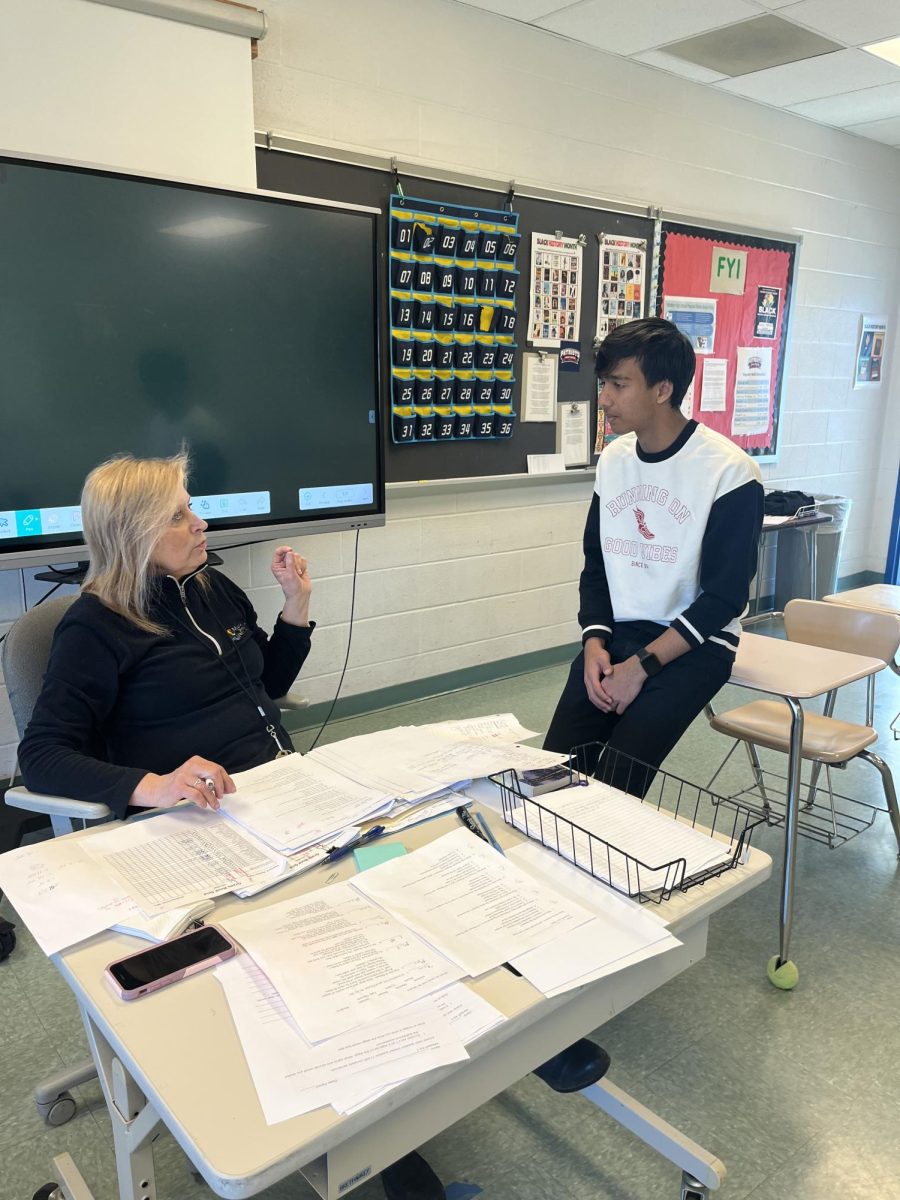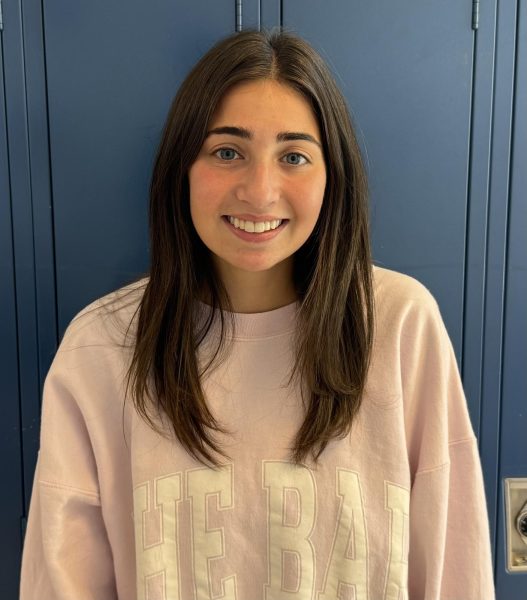It’s a Thursday afternoon and students walk into English class. Unexpectedly, a substitute teacher is sitting at their teacher’s desk and hushed groans erupt as students brace themselves for their names to be inevitably butchered during attendance.
What those students may not realize is that substitute teaching goes beyond reviewing the lesson plans for the day and warning students to put away their cell phones.
Joe Templin is a substitute teacher who frequently covers the English and social studies departments. Templin is a musician and also substitute teaches at WJ, Blake, Einstein and Damascus for their music programs. He prefers to substitute teach in the English department at this school and Whitman because he “got started there, I know most of the teachers in that department and so a lot of them contact me directly to ask me if I can cover for them,” Templin said.
Coming from the Department of Natural Resources and working with MCPS on Outdoor Education, Anna-May Hanson started in the science department subbing for James Forsberg’s honors biology class. Since then, she has expanded to teaching English, social studies and math. Although she was originally nervous to teach English because she was worried about plagiarism, she quickly learned how much she enjoyed those classes. “Mr. Lowe asked me to go to English, which was out of my comfort zone but I did that and I fell in love with it,” Hanson said.
Hanson is a long-term substitute teacher 85% of the time and otherwise helps out with daily, short-term subbing. Hanson said she enjoys being a substitute teacher because she’s “a very academic person so if I have to learn a Shakespeare [play] to teach I thrive in it. I love learning to teach something I haven’t done,” Hanson said.
Another familiar face students have grown accustomed to when their teacher is absent is Joan Goldstein. She began at this school as a substitute teacher in the ‘90s before becoming a member of the staff. Goldstein worked with math teacher Jon Marchand on a program called Scholars (now known as ASPIRE). The program is “more for students who need a bit of extra help in navigating the system, mostly ninth and 10th graders [in] staying organized [and] making up tests,” Goldstein said.
Since retiring, Goldstein said she enjoys the flexibility of substitute teaching because she can dictate when she wants to exercise, have lunch with friends, and travel, balanced with her love of teaching. “I retired and I missed the connection of my friends in the school and the students,” Goldstein said.
Similar to substitute teachers’ opinions regarding schools and subjects they prefer to teach, they also have grade levels they prefer. Goldstein said she enjoys hearing where everyone is at in their lives when she teaches juniors and seniors. Hanson, teaching at Damascus, Frost, Baker Middle School and this school, sees a difference in the energy and maturity levels between grade levels. Hanson said she enjoys the variety of being able to “do many subjects, I get to do many grades, and this [part of the job] is the best one for me, I watch the students grow,” Hanson said.








![Editors-in-Chief Ahmed Ibrahim, Helen Manolis, Cameron Cowen, Alex Grainger, Emory Scofield, Hayley Gottesman, Rebekah Buchman and Marley Hoffman create the first print magazine of the year during the October press days. “Only a quarter of the schools in MCPS have programs that are like ours, a thriving, robust program. That makes me really sad. This is not just good for [the student journalists] to be doing this, it’s good for the entire community. What [student journalists] provide to the community is a faith in journalism and that continues for their lifetimes," Starr said.](https://woottoncommonsense.com/wp-content/uploads/2025/10/wmpoFTZkCPiVA3YXA4tnGoSsZ4KmnKYBIfr18p3l-900x1200.jpg)
